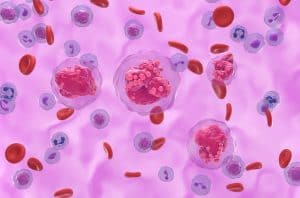NICE approves Sutent but rejects rivals
pharmafile | February 4, 2009 | News story | Sales and Marketing | NICE, par
NICE has approved Pfizer's Sutent but rejected three other treatments for kidney cancer.
The decision is one of the first to be made using NICE's 'end-of-life' QALY appraisal, which makes it easier for expensive cancer treatments to gain approval.
Pfizer also helped to seal a positive decision by offering a price reduction. The company struck a deal with the Department of Health to provide the first cycle of treatment free, worth £3,139.
The decision has been welcomed by patient groups, including MacMillan Cancer Support.
"This is a victory for kidney cancer patients and is long overdue," said Rachel Rowson, policy manager at the charity.
"This decision recognises the need to fund drugs that improve quality of life for patients and we applaud NICE for making Sutent available to all who need it."
She added, however, that Macmillan would continue to campaign for the approval of the remaining three drugs.
Splitting up the appraisal
All four drugs were appraised together, but NICE took the unusual step of splitting them up, putting Sutent in a new separate appraisal to the three rejected drugs, Bayer's Nexavar, Wyeth's Torisel and Roche's Avastin.
Professor Sir Michael Rawlins, NICE's chairman, said evidence led NICE to only approve one of the four drugs, so the 'decent thing to do' was to stop patients waiting for treatment by dividing the appraisal.
He told Pharmafocus: "If we do multiple appraisals and they come to divergent conclusions, we don't want to keep everyone hanging around. It's more reasonable to split them."
It means Sutent will be made available now in England. The three rejected drugs have the chance of being approved at a later date through NICE's consultation and appeal process.
Pfizer welcomed the positive opinion. Garry Nicholson, president and general manager, Oncology Business Unit at Pfizer said: "Today's recommendation is an important step forward for kidney cancer patients and also for physicians in the UK who now have a proven treatment option for this difficult to treat cancer. We appreciate this recommendation by NICE on behalf of patients."
Waiting
Patient groups have campaigned for access to the medicines since they were initially refused by NICE last summer, when all four were deemed too expensive for the limited clinical benefit shown.
But patient group campaigning helped bring about the end-of-life QALY approval, which was introduced in January 2009.
In Wales, the country's health minister recently pre-empted NICE by instructing the NHS there to fund all four of the medicines in order to end the wait for treatment.
NICE's Prof Rawlins denied pressure from Wales had persuaded the Institute to split its appraisal, which he said had been done because Sutent represented better cost-effectiveness than the other drugs. He added that it was a good decision for the UK.
Bayer, Wyeth and Roche and patient groups will have the opportunity to appeal against the negative verdict delivered on their medicines.
Final advice on the use of these three drugs, and Sutent, will be issued in March.
Related Stories:
NICE makes end-of-life drugs more available
Tuesday, January 06, 2009
Green light for kidney cancer drugs in Wales
Sunday, January 25, 2009
NICE set to deny access to kidney cancer drugs
Friday, August 08, 2008
Related Content

NICE recommends migraine treatment for NHS use
The National Institute for Health and Care Excellence (NICE) has shared draft guidance recommending AbbVie’s …

GSK’s Jemperli recommended by NICE for endometrial cancer treatment
GSK has announced that the National Institute for Health and Care Excellence (NICE) has recommended …

NICE recommends SC treatment of AbbVie’s Tepkinly for patients with DLBCL
AbbVie has announced that the National Institute for Health and Care Excellence (NICE) has recommended …








